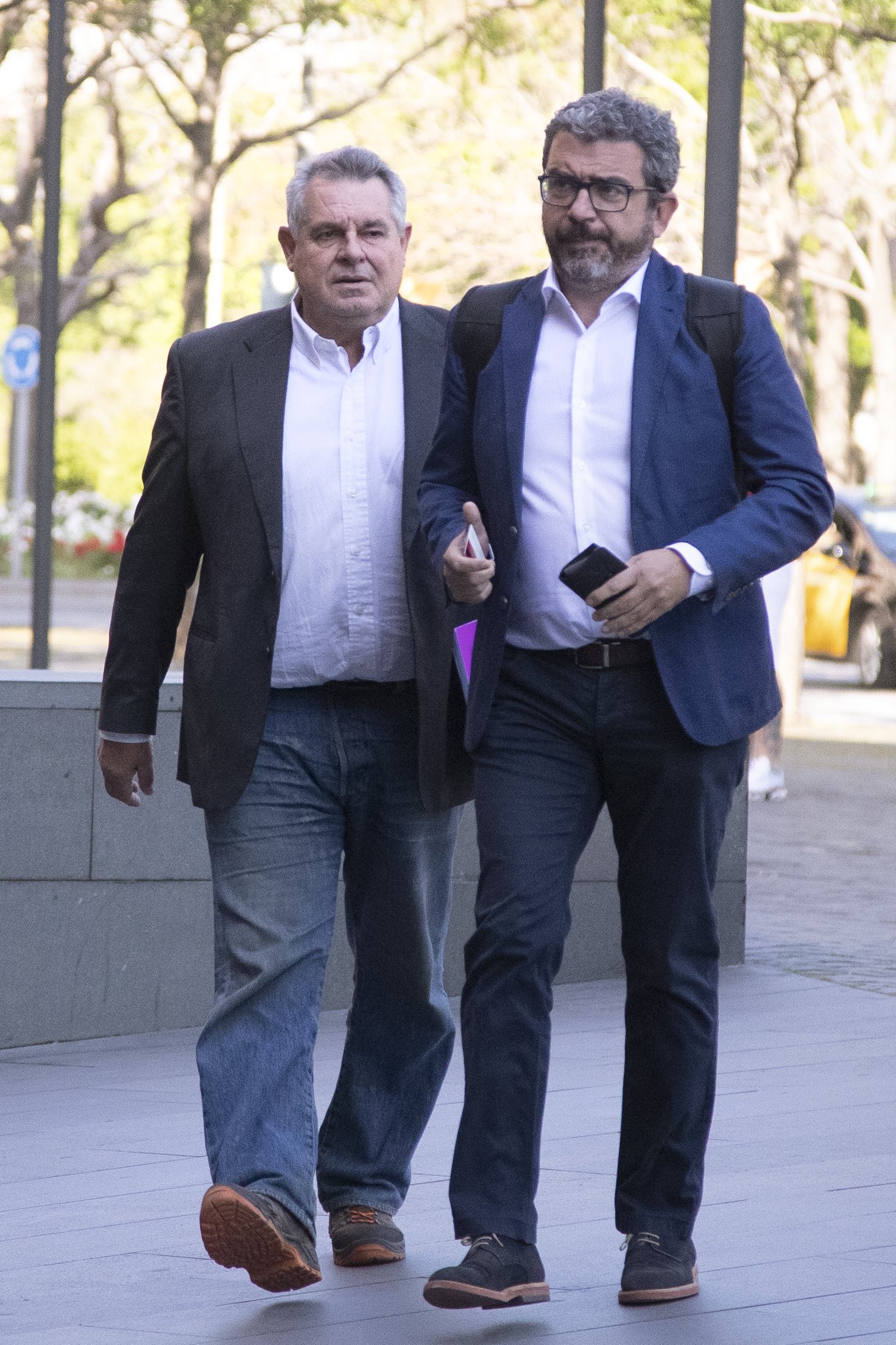The judge asked controversial questions, to which the prosecutor objected, but the defendant answered that there was no plot linking the independence movement to Russia. Víctor Terradellas, former international affairs representative in the now-defunct Catalan political party Convergència Democràtica (CDC) and president of the Catmon Foundation, has today denied any link between president Carles Puigdemont and an alleged Russian intrigue aimed at obtaining financial support for an independent Catalonia, in his testimony before the judge, according to judicial sources. Terradellas is being investigated in the so-called Diputació case, over alleged improprieties in subsidies to bodies connected to the CDC party, and with regard to this financing case he replied that the monetary assistance received was the responsibility of Francesc de Dalmases, a deputy for Junts whose investigation has already been rejected once in the case, by the Catalan High Court.
The judge of Barcelona investigating court number 1, Joaquín Aguirre, took the opportunity to interrogate Terradellas for about three hours over the Volhov case, a derivative of the Diputació case, which was re-opened when audio files were found in the possession of Terradellas himself, in which he stated that Catalan president Puigdemont "shat his pants" in 2017 when Russian envoys told him that they would support him with 10,000 Russian soldiers if the cryptocurrency business went ahead. The long questioning session by the judge was subject to an objection by the anti-corruption prosecutor, Fernando Maldonado, because today's summons was only for the Diputació corruption case, not the highly-topical Volhov case.
Soldiers
In the interrogation, led by judge Aguirre, Terradellas, with his lawyer Francesc Sánchez, explained that he participated in two meetings with Puigdemont and claimed representatives of Russian government circles, on October 24th and 25th, 2017, two days before the declaration of independence of Catalonia, which in the end was not made effective. Terradellas clarified to the judge that the Russian representatives, brought there by Jordi Sardà Bonvehí, wanted to know how Catalonia, once independent, would be financed, and they offered to assist with this via the cryptocurrency business. One of them told him that "once they were a state" he could offer them 10,000 Russian soldiers. Until now, this offer by the alleged Russian representative had been linked to the conflict with the Spanish state. "The president never believed them," lawyer Sánchez said in a statement to the press, adding that "when Terradellas said that he 'shat his pants', he meant that the Catalan president did not want to know anything about them”. Terradellas also denied before the judge that he had recorded the statements that he made before the former Catalan minister Xavier Vendrell (ERC) and the former CDC official David Madí, in two separate interviews and that the Civil Guard assert they found on his mobile phone in 2018 when he was arrested.
It was confirmed this Monday from president Puigdemont's office that he had held a meeting on the 26th October, 2017, at the Casa de les Canonges in Barcelona, at the request of Victor Terradellas, with two Russian citizens, as he did with other authorities, and without arriving at any agreement. The newspaper El Periódico stated on Monday that the second meeting was attended by Nikolay Sadavnikov, who, it says, was linked to the Russian foreign ministry and a Panamanian company, as well as Sergey Motin, who failed to pay for a treatment at a Barcelona medical clinic, and later died of cancer. Also present was Sardà Bonvehí, involved in an alleged fraud over gas sales in Ukraine, in addition to Terradellas.
Terradellas has admitted to the judge that he travelled to Russia in 2018, but attributed it to personal and private reasons and said he did not go there with any assignment from Puigdemont. "Terradellas is a man interested in the international world and cooperation since the 1990s," said his lawyer.
'Diputació' case
Judge Aguirre opened the case of the Diputació ("provincial authority") in 2016. In the case of the two foundations, CatMon and Igman, subsidies they received from 2012 to 2016 are in question, and according to the police report, in these years they received 429,091 euros from Barcelona city council, the provincial council and the Catalan government. When the judge raised Dalmases's indictment to the higher court, he stated in the report that "Terradellas and Dalmases lived on subsidies." Lawyer Francesc Sanchez said Terradellas "flatly denied to the judge that Catmón served as a money launderer for CDC, as had been accused."

